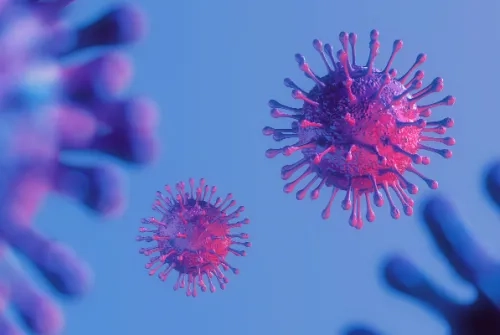Alo Yeditepe
Alo Yeditepe
What is the Eris Variant? What are the symptoms of the Eris Variant?
Yeditepe University Hospitals' Medical Microbiology Specialist Prof. Dr. Pınar Çıragil provided information about the Eris Variant (EG.5), which is one of the new variants of the coronavirus that has caused millions of people to lose their lives worldwide and has been detected in 51 countries.
The world, which has been battling the coronavirus for over three years, is now taking action against the Omicron subvariant called the Eris variant. The World Health Organization (WHO) has drawn attention to the fact that the EG.5 variant, referred to as "Eris," has been detected in 51 countries so far, and they have cautioned countries not to lift their COVID precautions. Medical Microbiology Specialist Prof. Dr. Pınar Çıragil shared the following information about the Eris variant, which has raised new concerns:
"Eris Variant Cases Are Increasing."
The EG.5 variant (ERIS), first reported on February 17, 2023, is a subvariant of Omicron that began to be observed in late 2021 and has undergone several mutations since then. It was designated as a Variant Under Monitoring (VUM) by the World Health Organization (WHO) on July 19, 2023. According to WHO's Initial Risk Assessment conducted on August 9, 2023, they reported that EG.5 and its subtypes have been designated as a Variant Of Interest (VOI) and advised health authorities to closely monitor its transmission. Globally, there has been a steady increase in EG.5 rates since its emergence.
"The symptoms of Eris Variant are the same as Covid."
Like other SARS-CoV-2 variants, EG.5 commonly causes symptoms such as fever, cough, fatigue, and loss of taste or smell. It can also lead to sore throat, headache, aches and pains, diarrhea, redness, and eye irritation. It typically resolves within one to two weeks, especially in mild cases.
"Who Might Experience a More Severe Course with the Eris Variant?"
The latest Covid-19 Omicron variant, EG.5, is known to spread more easily and evade immunity compared to older variants. However, despite an increase in the frequency of "Eris" cases and its immune escape characteristics, no changes in disease severity have been reported so far. WHO has assessed the health risk posed by EG.5 as low and similar to other Omicron subvariants. While an increase in EG.5 cases has been observed, some countries like Japan and the Republic of Korea have reported lower hospitalizations due to Covid-19 compared to previous waves, and no direct correlation has been established between EG.5 and hospitalizations. Nevertheless, this variant can lead to a more severe course in immunocompromised elderly individuals and those with chronic conditions such as diabetes and cardiovascular diseases.
"The Eris Variant May Increase in the Fall."
With the arrival of autumn, the cooling weather will lead people to spend more time indoors and in crowded settings. Since the mask mandates have been lifted, COVID-19 may coexist with other respiratory pathogens during this time. In the UK, it has been reported that a vaccination program will be conducted in the fall, primarily recommended for elderly individuals and those with compromised immune systems. However, there is no definitive information available yet on the approach that will be taken in Turkey and other countries. It is said that vaccines provide some protection against severe illness, but providing exact information on this matter is currently challenging.
"Our Country is at Risk with the Eris Variant."
The fact that it has been observed in other countries around the world certainly poses a risk for our country as well. This is because there is a possibility of the virus being carried due to international travel between countries. Additionally, transmission could occur in airplanes or public transportation where masks may not be worn. While Covid cases are still rare, they could increase in the fall. In fact, we are still seeing some other upper respiratory viral and bacterial infection agents as well.
"Hygiene Rules are Important to Avoid Contracting the Eris Variant."
It is important to pay attention to vaccine doses, especially for individuals at high risk of Covid-19, such as the elderly and those with weakened immune systems. Immunity levels have decreased over time since the community vaccination, so adherence to regular handwashing and general hygiene rules still holds importance in preventing infection. On the other hand, to maintain a strong immune system, it's essential to focus on healthy eating, engage in regular exercise, and avoid smoking.
About
Faculty and Year of Graduation:
Çukurova University Faculty of Medicine, 1990
Alo Yeditepe




